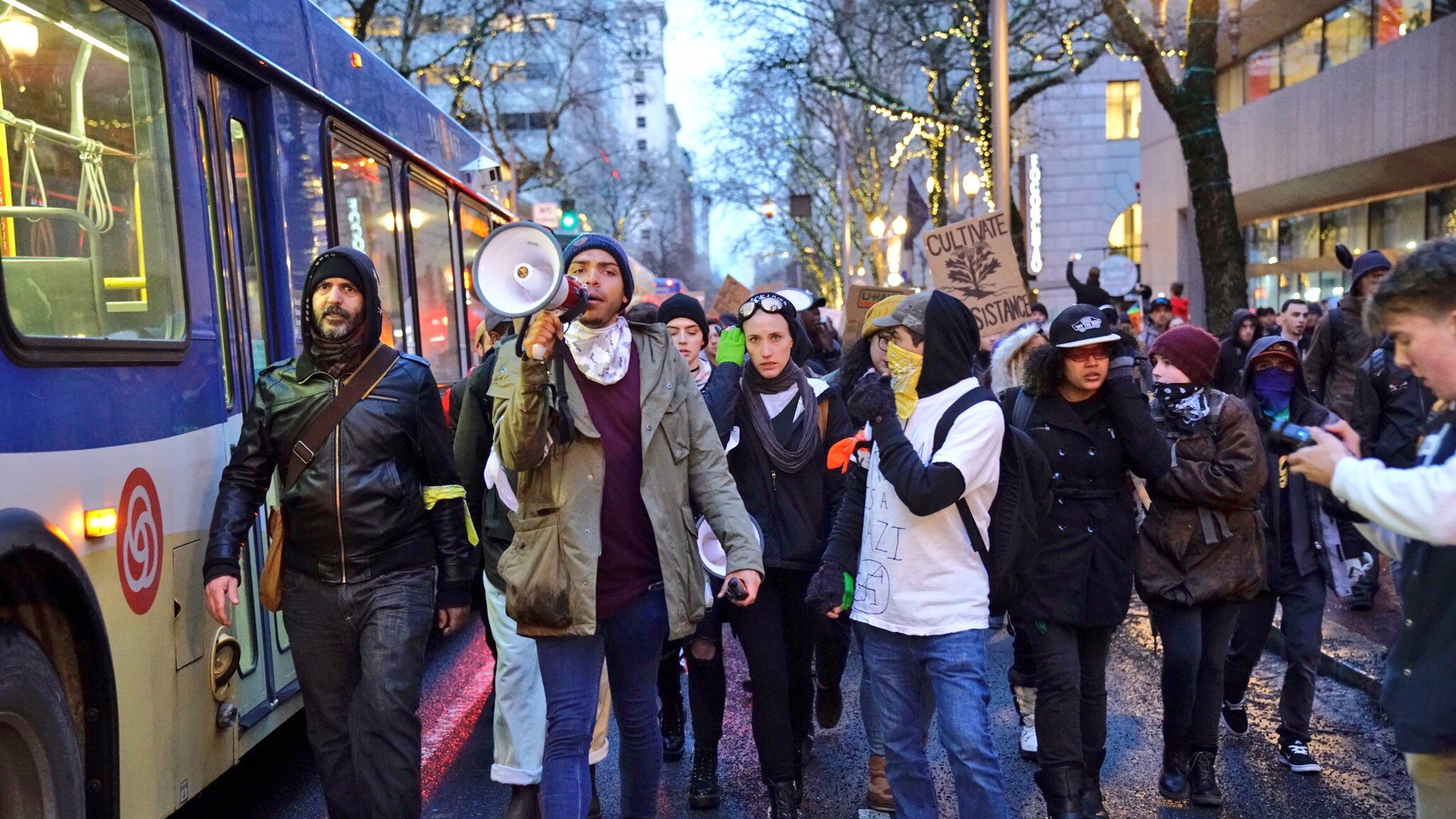Portland's Resistance, one of the city's most active protest collectives, has organized a sit-in at the downtown Columbia Sportswear headquarters as a response to signs that popped up this week barring daytime sitting on some downtown streets.
The signs declare that the sidewalks are intended for "pedestrian use only" and bar daytime sitting—a clear attempt to keep homeless Portlanders from resting outside of shops.
The new notices come two weeks after Columbia Sportswear CEO Tim Boyle penned an op-ed in The Oregonian voicing concerns about how frequently his employees had been the victims of crime and harassment.
The protest calls for people to sit in the so-called "no sit zones" as a show of "solidarity with our houseless neighbors." The event is scheduled for 12 pm to 3 pm on Saturday.
Mayor Ted Wheeler says criticisms of the no-sit zones are misguided.
"It's irresponsible to conflate homelessness and crime," he said in a statement. "We can address safety issues with common sense enforcement. We can address homelessness with compassion. That's our plan."
But the protest group, led by social-justice activist Gregory McKelvey, says the no-sit zones are a betrayal by the mayor of his commitment to housing vulnerable people.
“Ted Wheeler has chosen to fast-track more no-sit zones to prevent houseless individuals from being where businessmen don’t want to see them,” the group writes. “He has also increased police patrols which will result in more deportations, harassment of houseless individuals and racist policing.”
Portland's Resistance is best known for organizing six nights of anti-Trump protests in the week following last November's presidential election. Those marches shut down city streets and interstate highways.

